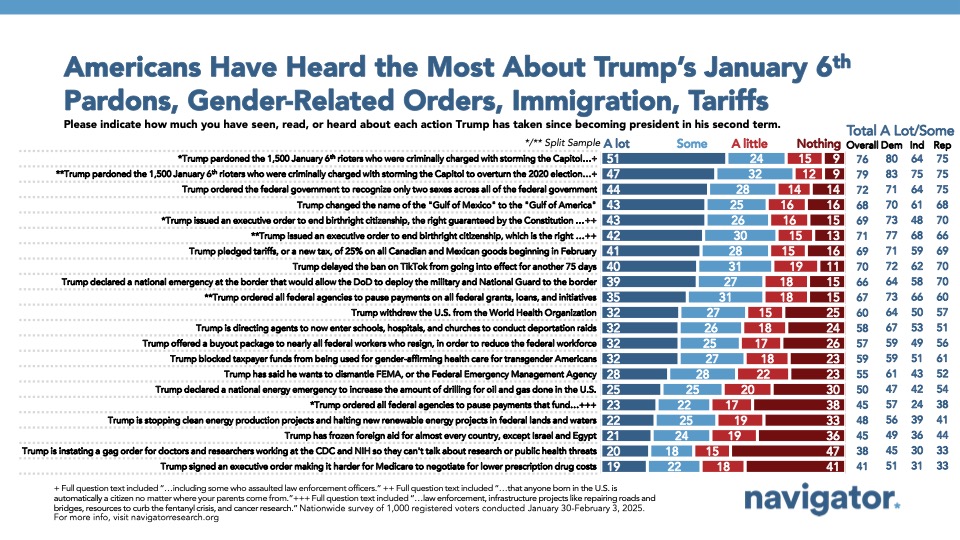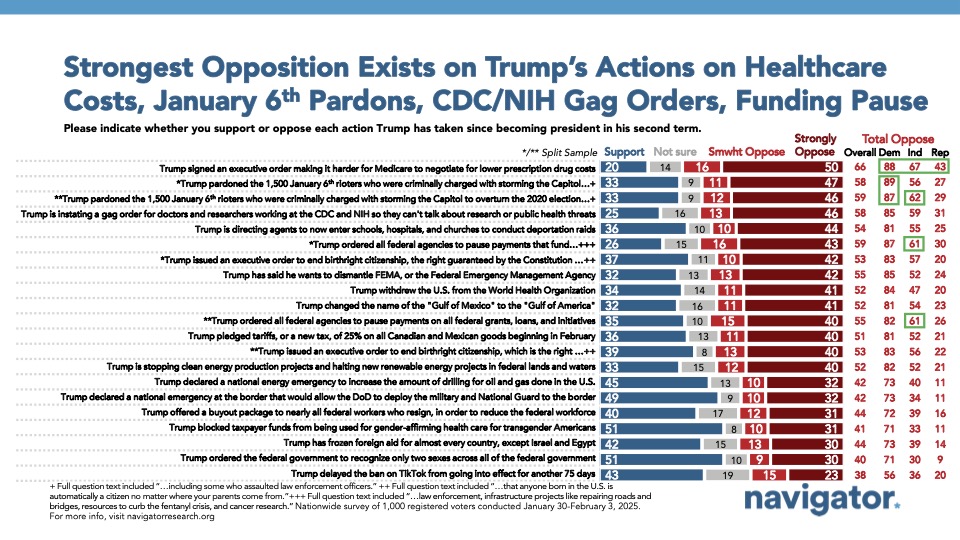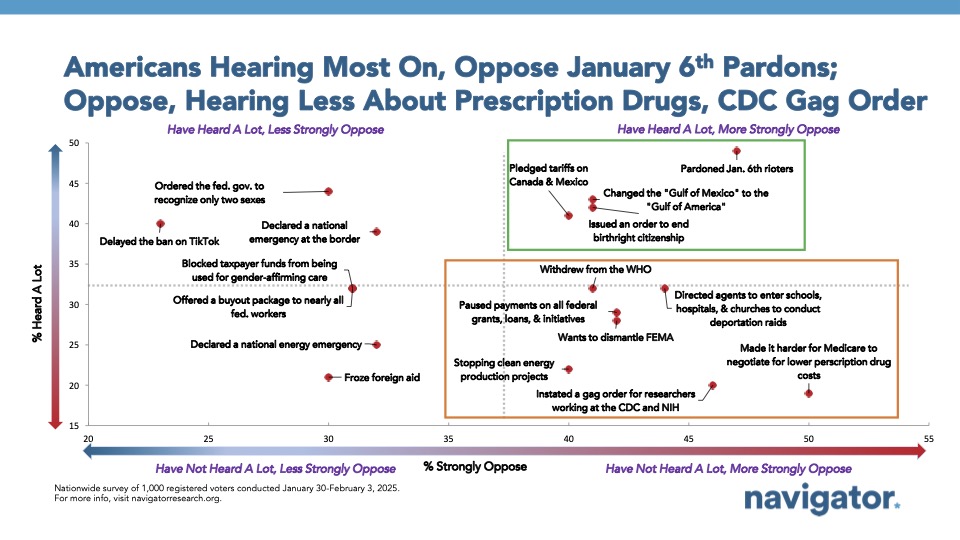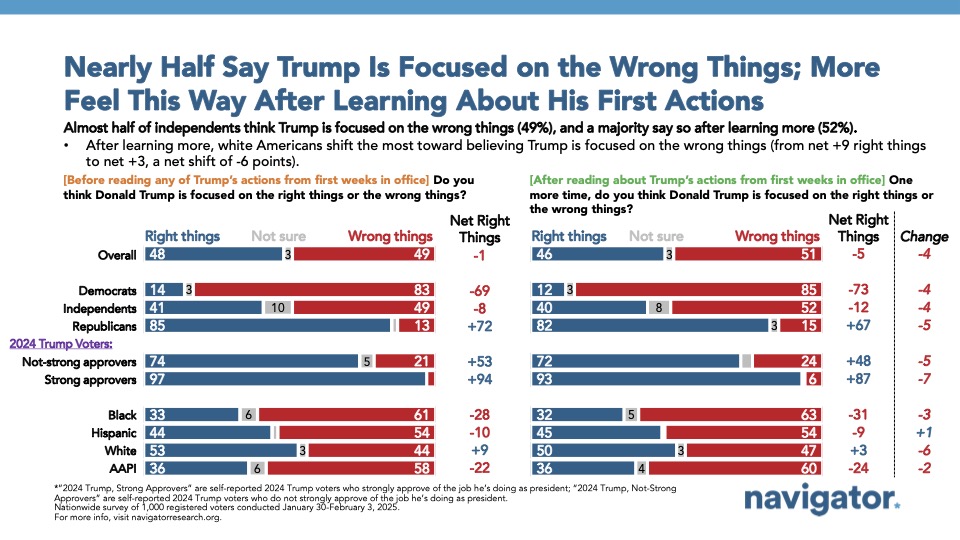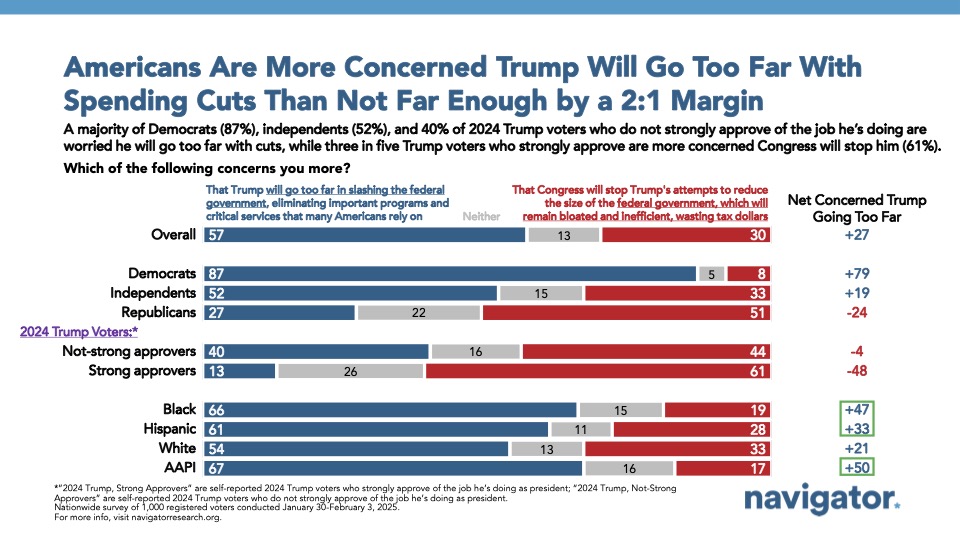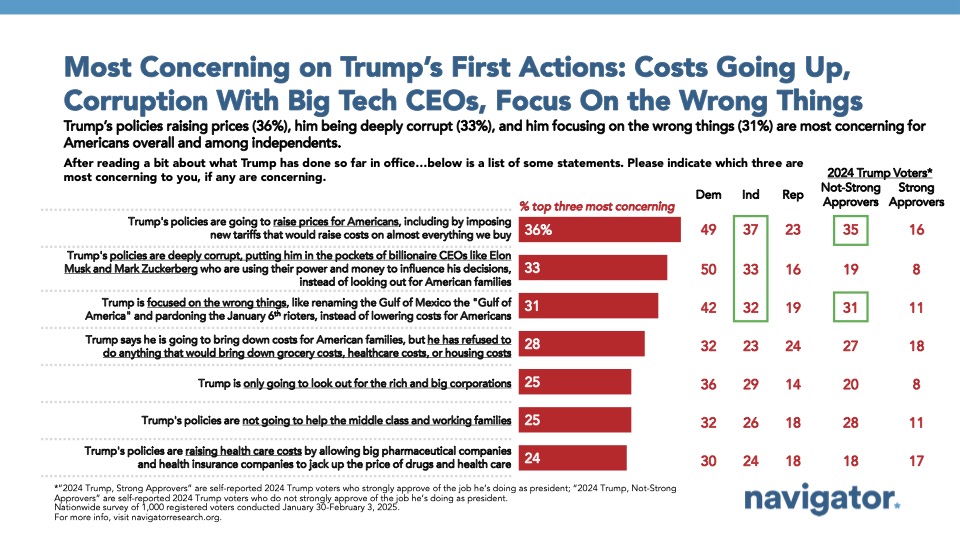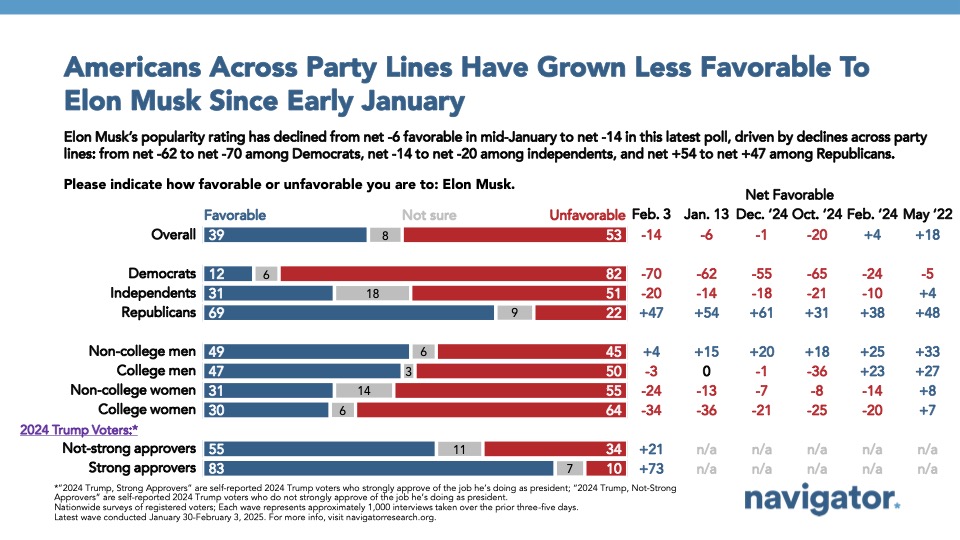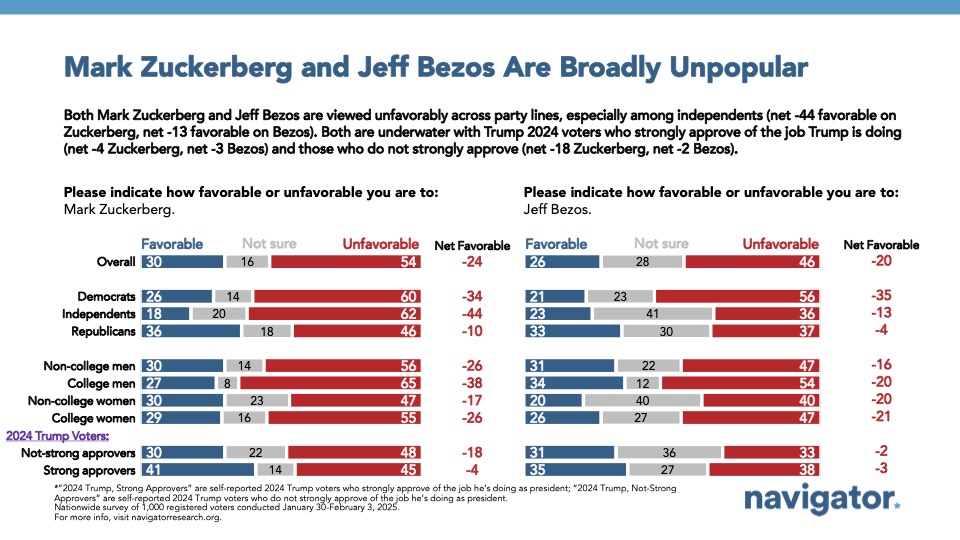Poll: Trump’s First Acts
This Navigator Research report focuses on reactions to Trump’s first weeks in office, including perceptions of Trump’s initial executive actions and policies, what actions Americans are hearing the most about, and who is viewed as having influence over the Trump administration.
Among Trump’s initial actions while back in office, Americans are hearing the most about January 6th pardons, gender-related orders, immigration, and tariffs.
79 percent of Americans have heard “a lot” or “some” about Trump pardoning all of the 1,500 January 6th rioters who were charged with storming the Capitol to overturn the 2020 election, with nearly three in five opposing the action (33 percent support – 59 percent oppose). Seven in ten have heard “a lot” or “some” regarding Trump’s actions to recognize only two sexes across the federal government (72 percent), to end birthright citizenship (71 percent), and to impose tariffs on all Canadian and Mexican goods (69 percent).
- While two in three Americans oppose Trump’s executive order to make it harder for Medicare to negotiate for lower prescription drug costs (net -46; 20 percent support – 66 percent oppose), only two in five have heard at least “some” about it (41 percent).
- Three in five Americans oppose Trump’s actions to pause federal funding for federal grants and loans (net -33; 26 percent support – 59 percent oppose), and majorities oppose his executive orders to end birthright citizenship (net -16; 37 percent support – 53 percent oppose) and to impose new tariffs on Canadian and Mexican goods (net -15; 36 percent support – 51 percent oppose).
- By a narrow 5-point margin, more Americans think Donald Trump is focused on the wrong things (51 percent), while 46 percent think he is focused on the right things, with nearly half citing feeling anxious or discouraged about the current state of politics (48 percent and 44 percent, respectively). Republicans overwhelmingly believe Trump is focused on the right things (net +72; 85 percent right things – 13 percent wrong things), with most reporting they feel hopeful about the state of politics (69 percent), while a majority of independents believe he is focused on the wrong things (net -12; 40 percent right things – 52 percent wrong things), with nearly half feeling anxious (49 percent)
By nearly a two-to-one margin, Americans are more concerned about Trump’s government cuts going too far and eliminating important programs than not going far enough.
By 27 points, Americans are more concerned that Trump will go too far in slashing the federal government and will eliminate important programs (57 percent) than they are about his efforts being stopped and the federal government wasting taxpayer dollars (30 percent). Democrats and independents are more concerned about Trump’s cuts going too far (87 percent and 52 percent, respectively). Republicans are more concerned about Trump’s cuts being stopped (51 percent cuts not going far enough – 27 too far), though non-MAGA Republicans are evenly split (38 percent cuts not going far enough – 39 percent too far).
- When shown a list of statements about Trump’s initial actions in office, the ones seen as most concerning include that “Trump’s policies are going to raise prices for Americans, including by imposing new tariffs that would raise costs on almost everything we buy” (36 percent) and that “Trump’s policies are deeply corrupt, putting him in the pockets of billionaire CEOs like Elon Musk and Mark Zuckerberg who are using their power and money to influence his decisions instead of looking out for Americans families” (33 percent).
Majorities believe tech CEOs will have a negative influence on the Trump administration.
69 percent of Americans believe tech CEOs like Elon Musk, Mark Zuckerberg, and Jeff Bezos will have a lot or some influence in the Trump administration, with more seeing their influence as a bad thing than a good thing (net -13; 37 percent good thing – 50 percent bad thing). 41 percent are most concerned that tech CEO influence will lead to Trump looking after billionaires instead of the middle class and 32 percent are most concerned that their influence will lead to the Republican Party controlling what news we get online.
- A majority of Democrats (net -68; 12 percent good thing – 80 percent bad thing) and a plurality of independents (net -20; 27 percent good thing – 47 percent bad thing) believe tech CEO influence in the Trump administration will be a bad thing, while two in three Republicans view it more positively (net +45; 65 percent good thing – 20 percent bad thing).
- Favorability ratings of several tech CEOs tested in this survey are all underwater, including Mark Zuckerberg (net -24; 30 percent favorable – 54 percent unfavorable), Jeff Bezos (net -20; 26 percent favorable – 46 percent unfavorable), and Elon Musk (net -14; 39 percent favorable – 53 percent unfavorable).
- Musk has seen a dip in favorability since December (from net -1 to net -14), including among Republicans (from net +61 to net +47), independents (from net -18 to net -20), and Democrats (from net -55 to net -70).

